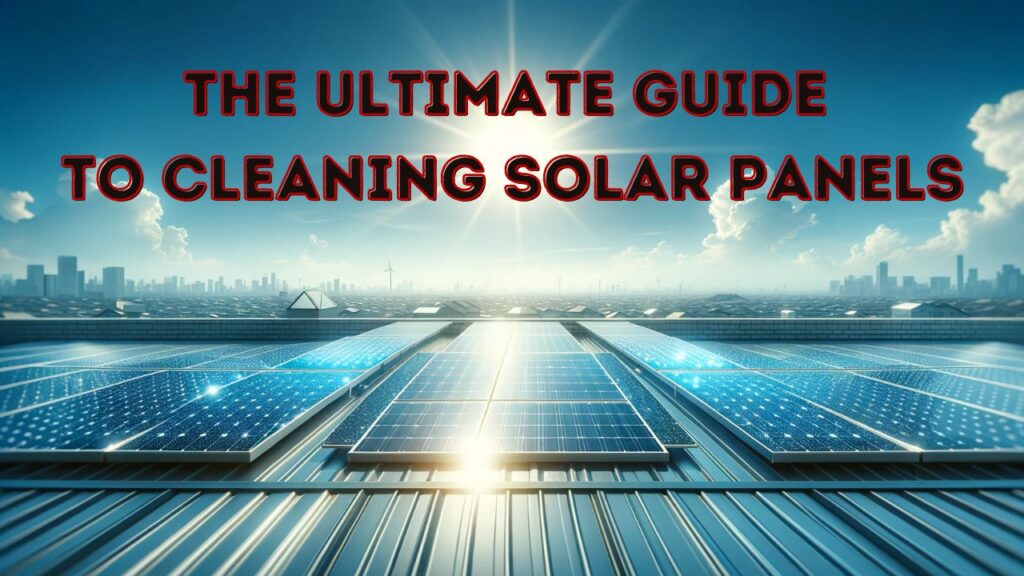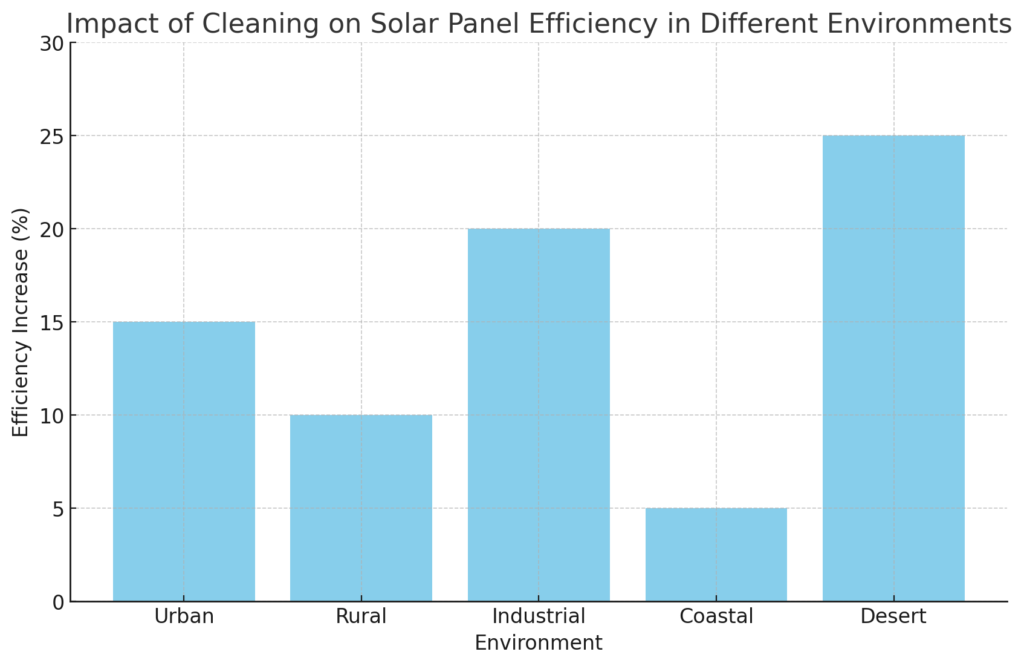The Ultimate Guide to Cleaning Solar Panels: Maximizing Efficiency and Longevity
Table Of Content
- 1 The Ultimate Guide to Cleaning Solar Panels: Maximizing Efficiency and Longevity
- 2 Introduction
- 3 Why Cleaning Solar Panels is Essential
- 4 Step-by-Step Guide to Cleaning Solar Panels
- 5 Professional Cleaning Services: Pros and Cons
- 6 Environmental Factors in Cleaning Choices
- 7 Beyond Cleaning: Comprehensive Solar Panel Maintenance
- 8 Concluding Thoughts
- 9 FAQs

Introduction
Harnessing solar energy through solar panels is a remarkable stride in green technology. However, their performance is highly contingent on maintenance, primarily cleaning. In this detailed guide, I’ll delve into the nuances of cleaning solar panels, ensuring you get the most out of your investment.
Why Cleaning Solar Panels is Essential
Solar panels can experience a significant drop in efficiency due to the accumulation of dust, pollen, bird droppings, and other debris. Dirty solar panels can lead to a loss of up to 25% in energy production. Regular cleaning not only enhances efficiency but also prolongs their operational lifespan.
Understanding the Impact of Dirt and Debris
- Types of Accumulation: Dust and pollen might seem harmless, but their accumulation forms a layer that impedes sunlight penetration. Bird droppings and leaves can cause more significant blockages, drastically reducing efficiency.
- Variation by Environment: The extent and type of dirt accumulation vary by location. Urban areas have more soot and dust, while rural areas might deal with pollen and bird-related debris.
Step-by-Step Guide to Cleaning Solar Panels
Safety Precautions: Always prioritize safety. Use secure ladders, harnesses, and ensure that the roof is safe to walk on, if necessary.
Shutting Down the System: To avoid any electrical risks, ensure the solar panel system is turned off.
Optimal Cleaning Time: Cleaning during cooler times, such as early mornings or late evenings, prevents rapid evaporation and thermal shock to the panels.
Selecting Cleaning Tools: Soft brushes and squeegees with extension poles are ideal. For tough grime, a mild, eco-friendly detergent is advisable. Harsh chemicals and abrasive tools should be avoided to prevent damage.
Rinsing Technique: Gently rinse the panels with a low-pressure hose to wash away loose debris and cleaning solution.
Regular Inspections: While cleaning, inspect for cracks, discoloration, or frame damage. Such issues might require professional attention.
Cleaning Frequency: This varies with your location. Places with high pollution levels or bird activity may require more frequent cleaning.

Professional Cleaning Services: Pros and Cons
While DIY is cost-effective, professional services offer specialized tools and expertise, especially for hard-to-reach or large-scale solar panel installations.
Environmental Factors in Cleaning Choices
Selecting biodegradable and non-toxic cleaning agents is crucial. Harsh chemicals can harm your garden and local wildlife and even seep into groundwater.
Beyond Cleaning: Comprehensive Solar Panel Maintenance
- Electrical and Structural Inspections: Yearly professional inspections are recommended to check electrical connections, mounting brackets, and inverter performance.
- Monitoring System Performance: Keep an eye on energy production. A sudden drop in output can indicate the need for maintenance.
Concluding Thoughts
Maintaining solar panels through regular cleaning and inspections is a minor yet vital aspect of solar energy utilization. This guide aims to provide you with a thorough understanding and practical steps to ensure your solar panels function at peak efficiency.
FAQs
Can rain replace regular cleaning? While rain can wash away some surface dirt, it’s often insufficient for thorough cleaning. Manual or professional cleaning is necessary for optimal performance.
How does debris impact solar panel efficiency? Debris-like leaves and bird droppings can block sunlight, leading to significant efficiency loss.
Are there any risks in using a pressure washer? High-pressure water can damage solar panels. It’s safer to use a garden hose with a nozzle for gentle rinsing.
Walking on Solar Panels: Is it Safe? Walking on solar panels is not recommended. It can lead to physical damage to the panels and poses a safety risk.
